Videos
Agenda
BREAKFAST
Planning better cities: How do we build the healthy city of the future?
Presentations From:
LUNCH
Safer cities: How do cities become better and more equitable environments in which to live
Presentations From:
Speakers
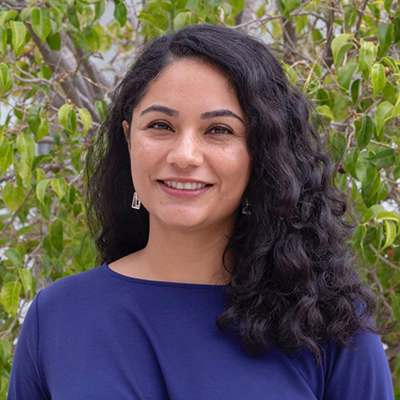
Melissa Chinchilla
@mychinchilla
Researcher, Department of Veteran Affairs
Dr. Melissa Chinchilla is a researcher with the VA Los Angeles HSR&D Center of Innovation (COIN): Center for the Study of Healthcare Innovation, Implementation, and Policy (CSHIIP); and an Associate Investigator with the VA Rehabilitation Research and Development (RR&D) Center on Enhancing Community Integration for Homeless Veterans (THRIVe).
Prior to joining the VA, Dr. Chinchilla was a Research Scientist with AltaMed Health Service’s Institute for Health Equity, one of the largest Federally Qualified Health Center (FQHC) in the nation, serving over 300,000 low-income patients in Southern California.
Dr. Chinchilla’s research focuses on the social determinants of health, with an emphasis on housing and homelessness. Among other work, she has conducted research on the community integration outcomes of formerly homeless Veterans housed through VA’s largest homeless program, the U.S. Department of Housing and Urban Development (HUD)-VA Supportive Housing (VASH). Her work also focuses on increasing our understanding of Latinx homelessness including barriers to homeless services connection and culturally relevant engagement strategies. Her work has been published in various journals including Cityscape, the Journal of Immigrant and Minority Health, and the Journal of Health Care for the Poor and Underserved. She also serves on various local and national committee’s including the National Alliance to End Homelessness’ Research Council and the Department of Housing and Urban Development’s Race and Ethnicity Homeless Data Work Group.
Dr. Chinchilla earned her doctorate in Urban Studies and Planning from Massachusetts Institute of Technology and holds a Master of Science in Health Policy and Management from the University of California, Los Angeles and a Master of City and Regional Planning from the University of California, Berkeley.
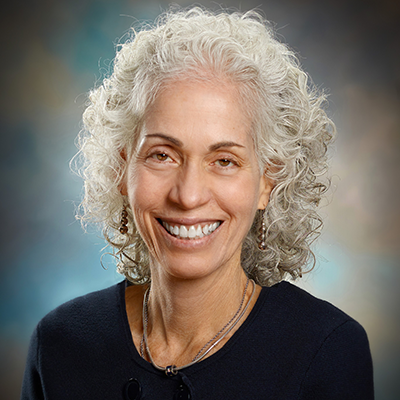
Barbara Ferrer
@lapublichealth
Director, Los Angeles County Department of Public Health
Dr. Barbara Ferrer is a nationally recognized public health leader with over 40 years’ experience as a public health director, educational leader, researcher, philanthropic strategist, and community advocate.
Currently, as the Director of the Los Angeles County Department of Public Health, which prevents disease and promotes health equity and well-being among more than 10 million county residents, Dr. Ferrer oversees a budget of over $1.8 billion, directs a workforce of nearly 6,000 staff, and works to integrate services with the County Mental Health and Health Services Departments. She guides the region’s COVID-19 pandemic response in collaboration with county and community-based partners.
Prior to directing the LA County Public Health Department, Dr. Ferrer spent decades leading public health efforts in Massachusetts. She served as the Executive Director of the Boston Public Health Commission, the city’s health department where, under her leadership, the City of Boston saw significant improvements in health outcomes, including a decrease in rates of childhood obesity, smoking, and infant mortality.
Dr. Ferrer also held leadership positions at the Massachusetts Department of Public Health, including Director of Health Promotion & Chronic Disease Prevention, and Director of the Division of Maternal & Child Health.
As a headmaster of a district high school in Boston, Dr. Ferrer secured funding from the Gates Foundation to amplify services and supports for students; over 90% of students graduated and of those graduating, 95% gained admission to college.
Dr. Ferrer also served as the Chief Strategy Officer for the W.K. Kellogg Foundation, overseeing programming and mission-driven investments.
Dr. Ferrer received her Ph.D. from Brandeis University where she was awarded a PEW fellowship in Health Policy. She also holds a Master’s in Public Health from Boston University, Master’s in Education from the University of Massachusetts, Boston, and Bachelor of Arts degree in Community Studies from the University of California, Santa Cruz.
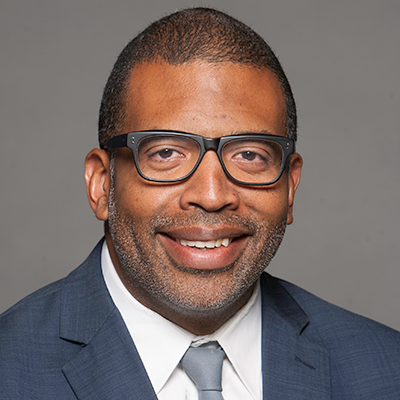
Arthur Jemison
@JAJemison2
Chief of Planning, Boston Planning & Development Agency
Chief of Planning for the City of Boston James Arthur Jemison also serves as the Director of the BPDA. He oversees the agency’s core missions of community-engaged planning, regulation of major real estate development, management of the BPDA’s real estate property (over 20 million square feet), and workforce training programs.
Jemison is a creative public-private development leader with over 28 years of planning and affordable housing expertise, working with community members to create equitable places in Detroit, Washington D.C., and Boston. Prior to joining the City of Boston, Jemison served as Principal Deputy Assistant Secretary of Housing and Urban Development (HUD).
Jemison joined HUD from the City of Detroit, where he was Group Executive for Planning, Housing & Development, leading the City’s efforts toward equitable growth, working in partnership with Directors of the Housing & Revitalization Department, the Planning & Development Department, the Detroit Land Bank Authority, Detroit Housing Commission, and the Bridging Neighborhoods program.
Before going to Detroit, Jemison served as Deputy Undersecretary and Deputy Director for the Department of Housing and Community Development (DHCD) for the Commonwealth of Massachusetts under Governor Deval Patrick. Prior to that, he held a variety of public and private-sector positions, all related to city planning and urban development, primarily in Massachusetts and the District of Columbia. This includes service at the Massachusetts Port Authority, Boston Housing Authority, the then-Boston Redevelopment Authority, and in private development work at GLC Development Resources.
Jemison has a Bachelor of Arts degree from the University of Massachusetts at Amherst and a Master of City Planning degree from the Massachusetts Institute of Technology, where he was a Public Policy and International Affairs (PPIA) Fellow. Jemison is also a 2021 Spirit of Detroit Award winner, a 2016 Michigan Chronicle Men / Women of Excellence awardee, and a member of the team recognized with the 2013 Robert Larson Public Policy Award for Workforce Housing from the Urban Land Institute, on behalf of the Commonwealth of Massachusetts.
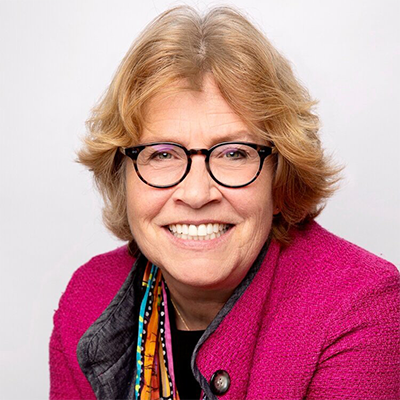
Mary Rowe
@rowemw
President and CEO, Canadian Urban Institute
Mary W. Rowe is a leading urban advocate and civil society trailblazer who has worked in cities and with communities across Canada and the United States.
Under Mary’s leadership, CUI has expanded its work to include an international network from government, industry, community and city-building professions to advance research and collaborate on solutions to some of our greatest urban challenges. This includes COVID Signposts and CityShare, the engagement of several senior fellows to incubate ground-breaking projects in Canada, and the development of CUI x Local, a series of virtual residencies in cities across Canada, to learn from on-the-ground practitioners about what’s working and what’s not, and to share learnings and build opportunities for collaboration between cities. Mary is also the facilitator of BiCEP—an alliance of senior executives leading some of Canada’s most significant urban regions, for which CUI is the secretariat.
Previously, Mary was President of the Canadian platform Ideas That Matter, a convening and publishing program based on the work of renowned urbanist Jane Jacobs, when a mid-career fellowship with the US-based blue moon fund led her to New Orleans. There she worked with national philanthropy, governments and community activists to support rebuilding through micro-investments in neighbourhood projects for seven years in the aftermath of Hurricane Katrina. Mary also lived in New York City and served as Executive Vice President of the Municipal Art Society (MASNYC), one of America’s oldest civic advocacy organizations focused on the built environment.
Mary is a frequent contributor to national and international city-building programs, including UN Habitat, the Massey City Summit, The Art of City Building and the World Urban Forum. Mary is also a Senior Fellow with Shorefast, a national charity focussed on building community economies, and the creator, executive producer, and host of CityTalk, a regular virtual discussion featuring a diverse line-up of leading and emerging voices on the most pressing issues of the day.
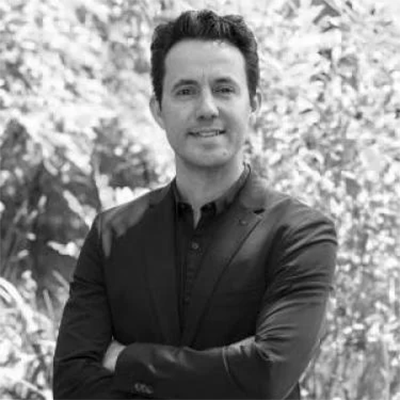
Jota Samper
@jotasamper
Assistant Professor, University of Colorado Boulder
Samper is Assistant Professor at the Program in Environmental Design. His work at ISR concentrates on sustainable urban growth and dwells at the intersection between urban informality (“slums”) and urban violent conflict. He obtained his BA in architecture in UNal in Medellin, a Master in City Planning from MIT and a Ph.D. on Urban and Regional Planning, also from MIT-DUSP, where he was a Lecturer for the past two years. In 2010, his project with estudio teddy cruz, exhibited at the MoMA.
He is a fellow of the “Drugs, Security and Democracy, SSRC”, and advisor for the “Strategic Masterplan for the Medellínnovation District. He is a co-founder of Mobility/Movilidad a nonprofit dedicated to choreograph meaningful conversations, video archive and mapping with marginalized communities.
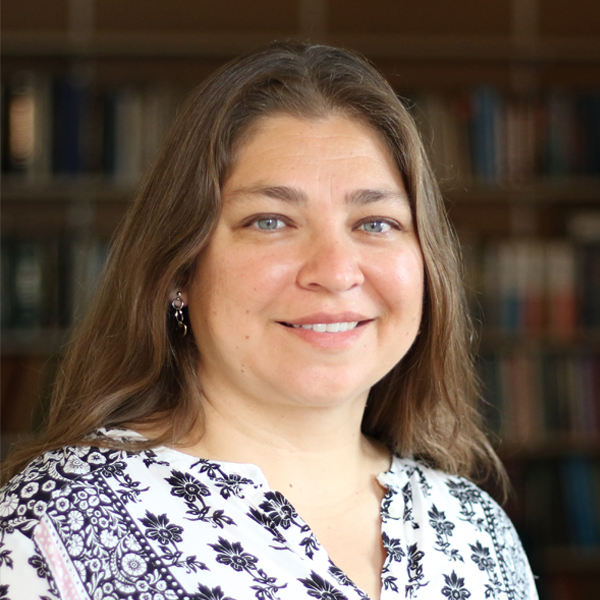
Patricia Fabian
@PatriciaFabianS
Associate Professor, Boston University School of Public Health
M. Patricia Fabian is an Associate Professor of the Department of Environmental Health, Associate Director with the Boston University Institute for Global Sustainability and affiliated with the Hariri Institute for Computing and the Graduate Program in Urban Biogeoscience and Environmental Health. She conducts research and teaching focused on health and environmental health disparities in the built environment, and built the first systems science model linking housing, indoor air quality, energy use, and health. She is the BU site PI for the Consortium for Climate Risk in the Urban Northeast and co-directs a study of heat exposure and vulnerability in the cities of Chelsea and East Boston. Her research teams are highly interdisciplinary and projects leverage big data at many scales, including electronic health records, remote sensing, and geospatial databases of social and environmental determinants of health (SDOH). Her research group has published over 100 articles in the peer-reviewed literature. Dr. Fabian was a Steering Committee member for the Massachusetts Executive Office of Energy and Environmental Affairs on the 80×50 Greenhouse Gas Reduction Study.
Current research interests: quantifying the energy-indoor air quality-health tradeoffs of decarbonization initiatives in current and future climate through systems science modeling, evaluating energy-health tradeoffs of interventions to reduce Covid-19 transmission in buildings, and supporting the design of heat adaptation and mitigation interventions at the individual, household, community, and city levels through community engaged research.
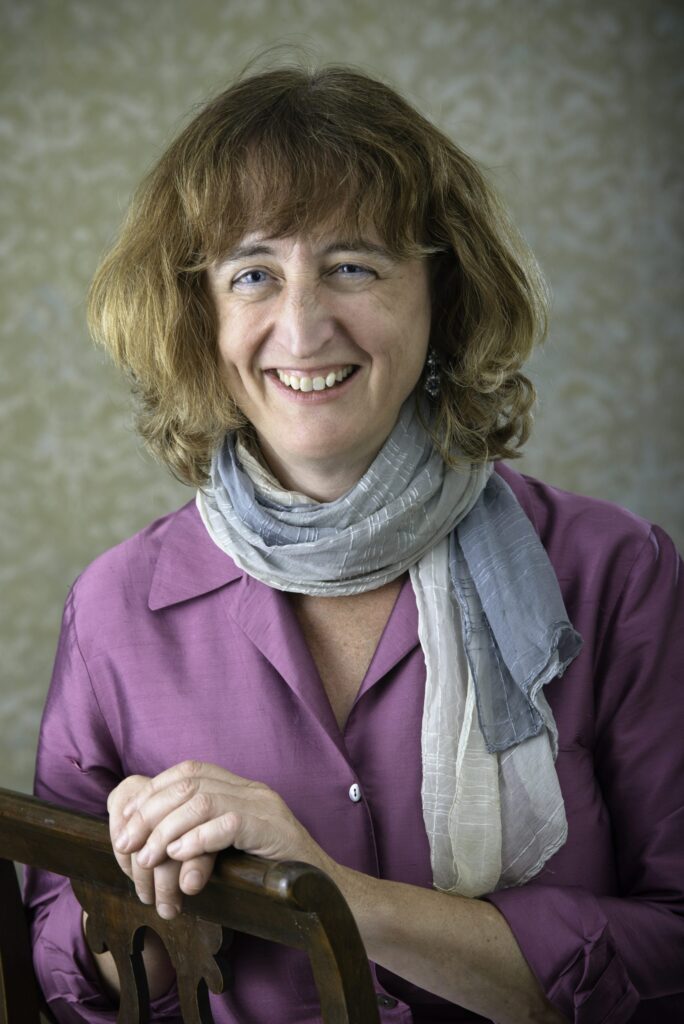
Karen Chapple
@profchapple
Director, School of Cities, University of Toronto
Karen Chapple, Ph.D., is the Director of the School of Cities at the University of Toronto, where she also serves as Professor in the Department of Geography and Planning. She is Professor Emerita of City & Regional Planning at the University of California, Berkeley, where she served as department chair and held the Carmel P. Friesen Chair in Urban Studies. Chapple studies inequalities in the planning, development, and governance of regions in the Americas, with a focus on economic development and housing. Her recent books include Planning Sustainable Cities and Regions: Towards More Equitable Development (Routledge, 2015), which won the John Friedmann Book Award from the American Collegiate Schools of Planning; Transit-Oriented Displacement or Community Dividends? Understanding the Effects of Smarter Growth on Communities (with Anastasia Loukaitou-Sideris, MIT Press, 2019); and Fragile Governance and Local Economic Development: Theory and Evidence from Peripheral Regions in Latin America (with Sergio Montero, Routledge, 2018). She has published recently on a broad array of subjects, including the use of big data to predict gentrification (in Environment and Planning B), the fiscalization of land use (in Landscape and Urban Planning), urban displacement (in the Journal of Planning Literature and Cityscape), competition in the electric vehicle industry (in Local Economy), job creation on industrial land (in Economic Development Quarterly), regional governance in rural Peru (in the Journal of Rural Studies), and accessory dwelling units as a smart growth policy (in the Journal of Urbanism). She holds a B.A. in Urban Studies (Phi Beta Kappa) from Columbia University, an M.S. in City and Regional Planning from the Pratt Institute, and a Ph.D. in City and Regional Planning from UC Berkeley. Prior to academia, she spent ten years as a practicing planner in New York City and San Francisco.

Bernadette Merikle
@FollowingB
Executive Director, Road Map Project
A joyful intersectionalist that always leads with race, B. Merikle’s work is centered on a guiding question that ponders just exactly who the offspring of King Cotton and Queen Sugar could be if trauma were not at the core of that child’s existence. As executive director of the Community Center for Education Results, the backbone organization for The Road Map Project in Washington state, B’s work has focused on setting the conditions for cities in the region to fully and joyously provide opportunities for Black and Brown genius to thrive. Bernadette has spent decades calling the question on racial justice and shifting power in ways that redefine and reclaim agency and power stripped away from communities like the border town of El Paso, TX where Bernadette was born. Black, they and she are B’s identifiers.
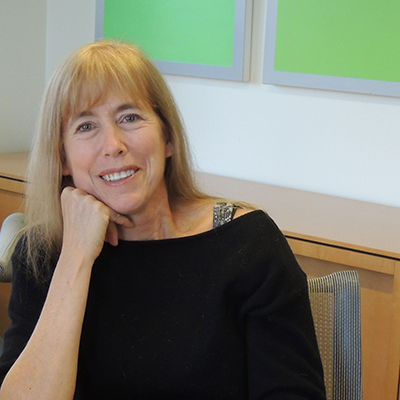
Mardelle McCuskey Shepley
@CornellCHE
Professor, Cornell University
Dr. Mardelle McCuskey Shepley, B.A., M.Arch., M.A., D.Arch., is a professor at Cornell University in the Department of Human Centered Design. She is Executive Director of the Cornell Institute for Health Futures. Previously she served a professor at Texas A&M University (TAMU) and was director of the TAMU Center for Health Systems & Design from 2004-2014. Mardelle is a fellow in the American Institute of Architects and the American College of Healthcare Architects. She is a WELL accredited professional and a LEED (Leadership in Energy and Environmental Design) accredited professional, as well EDAC (Evidence-Based Design and Construction) certified.
Dr. Shepley has authored/co-authored six books, including Healthcare Environments for Children and their Families (1998), A Practitioner’s Guide to Evidence-based Design (2008), Design for Critical Care (2009), Health Facility Evaluation for Design Practitioners (2010), Design for Pediatric and Neonatal Critical Care (2014), and Design for Mental & Behavioral Health (2017). Her papers have been published in Healthcare Management Review, Indoor and Built Environment, Journal of Perinatology, Landscape Architecture & Urban Planning, Health Environments Design & Research, World Health Design, Children, Youth & Environments, Journal of Housing for the Elderly, Journal of Environmental Psychology, General Hospital Psychiatry, Building Research Information, Evidence-based Medicine, Journal of Applied Gerontology, Journal of Interior Design, Child Health Care, Senor Housing & Care, Environment & Behavior, Perceptual & Motor Skills, among other peer-reviewed venues. To enhance the link between research and practice, Dr. Shepley worked 16 years fulltime in architectural/design practice prior to becoming an academic and continues to consult to design firms. She is founder of ART+Science, design research consultants.
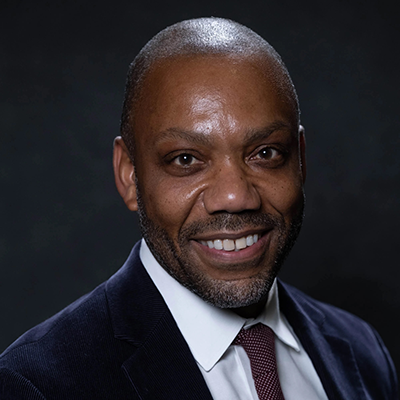
Andre Perry
@andreperryedu
Senior Fellow, Brookings Metro
Andre M. Perry is a Senior Fellow at Brookings Metro and a scholar-in-residence at American University. A nationally known and respected commentator on race, structural inequality, and education, Perry is the author of the book “Know Your Price: Valuing Black Lives and Property in America’s Black Cities,” which is currently available wherever books are sold. Perry is a regular contributor to MSNBC and has been published by numerous national media outlets, including The New York Times, The Nation, The Washington Post, TheRoot.com and CNN.com. Perry has also made appearances on HBO, CNN, PBS, National Public Radio, NBC, and ABC. Perry’s research focuses on race and structural inequality, education, and economic inclusion. Perry’s recent scholarship at Brookings has analyzed Black-majority cities and institutions in America, focusing on valuable assets worthy of increased investment.
Perry’s pioneering work on asset devaluation has made him a go to researcher for policymakers, community development professionals and civil rights groups. Perry co-authored the groundbreaking 2018 Brookings Institution report “The Devaluation of Assets in Black Neighborhoods” and has presented its findings on the price of home in Black neighborhoods across the country, including to the U.S. House Financial Services Committee. He has extended that report’s focus on housing in Black neighborhoods to include other assets such as businesses, schools and banks.
Prior to his work at Brookings, Perry has been a founding dean, professor, award-winning journalist, and activist in the field of education. In 2015, Perry served on Louisiana Governor-elect John Bel Edwards’ K-12 education transition committee, as well as on New Orleans Mayor-elect Mitch Landrieu’s transition team as its co-chair for education in 2010. In 2013, Perry founded the College of Urban Education at Davenport University in Grand Rapids, Mich. Preceding his stint in Michigan, Perry was an associate professor of educational leadership at the University of New Orleans and served as CEO of the Capital One-University of New Orleans Charter Network.
A native of Pittsburgh, Pa., Perry earned his Ph.D. in education policy and leadership from the University of Maryland College Park.
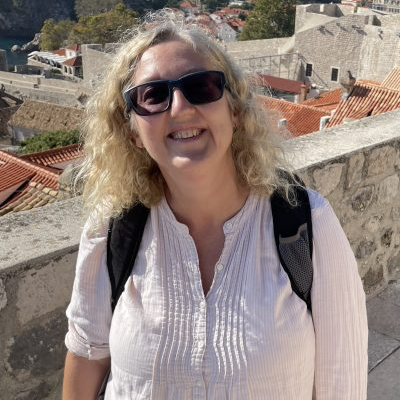
Loretta Lees
@LorettaCLees
Director of the Initiative on Cities, Boston University
Professor Loretta Lees (FAcSS, MAE, FRSA) recently moved from the UK to take up Director of the Initiative on Cities at Boston University. She is internationally known for her research on gentrification and urban regeneration, global urbanism, urban policy, urban public space, architecture, and urban social theory. She is the author of multiple books, her most recent Defensible Space on the Move, examines the policy mobility of urban housing redesign that purports to inhibit criminal behavior from the US to the UK. She is also known for her policy impact and deep community engagement. She recently completed her tenure as Chair of the London Housing Panel, convened by the Mayor of London and Trust for London as a structured way for voluntary and community organizations to advise on housing policy and practice. She was awarded the 2022 Marilyn J. Gittell Activist Scholar Award by the Urban Affairs Association in recognition of this work.
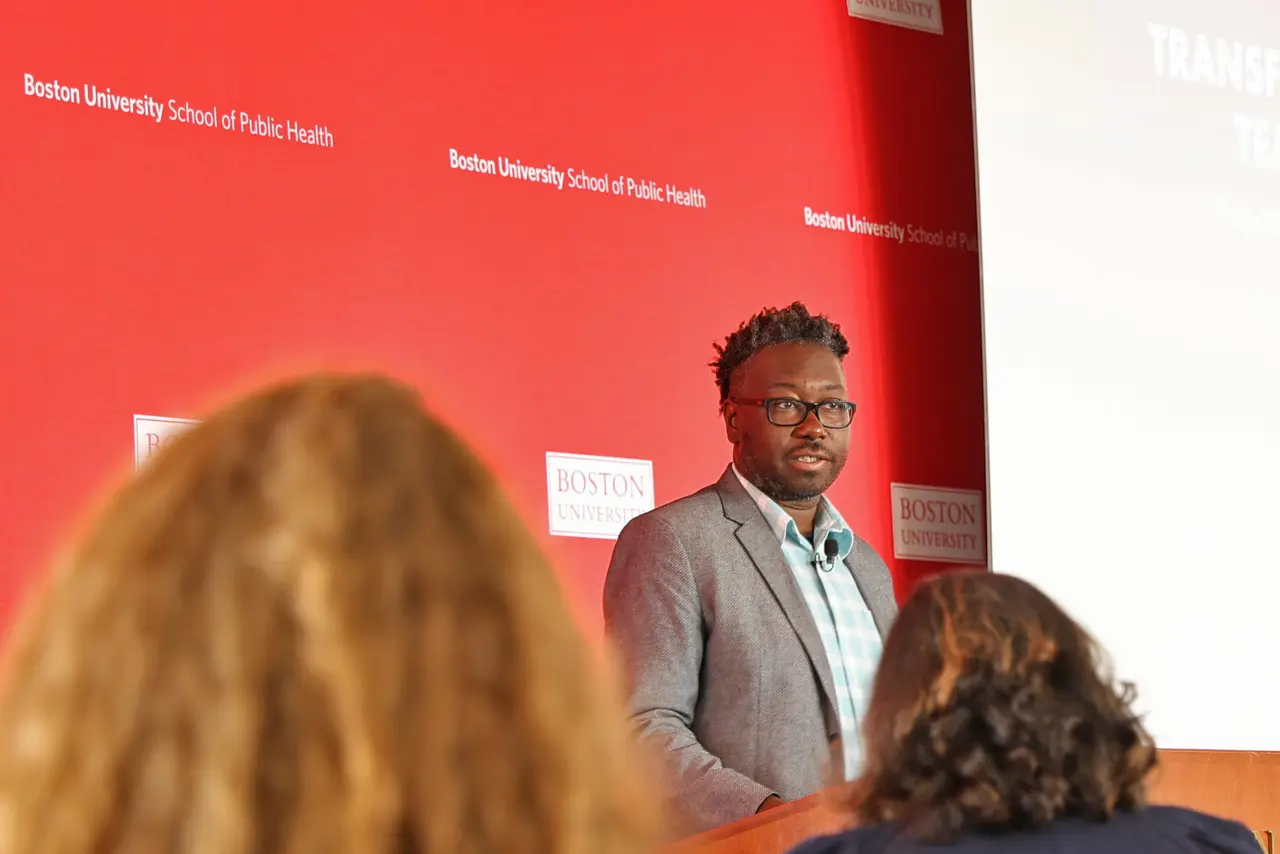
Subscribe to PHC
Get the latest from Boston University School of Public Health



